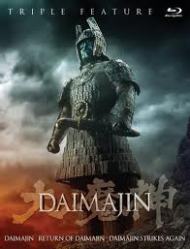Joe (Joseph Gordon-Levitt) is an assassin. The mob controls time travel in 2074 and sends their victims back in time to 2044 where Joe and his colleagues shoot them and dispose of the bodies. The final job of each “looper” is to kill his own future self. When Joe comes gun-to-face with himself (Bruce Willis), he hesitates and his future self gets away. On the run from the current mob, Joe must kill his target and clean up the mess, if that’s possible. Future Joe has his own plan: kill the cruel future leader now, when he is only a child.
Looper has been held up as this year’s smart science fiction film. I so wish that were true. As an avid science fiction fan, I’d love to see “smart,” but it isn’t to be found in Looper. And unlike the promise of the trailer, action is in short supply too. Looper is a competently acted and shot drama that is in no hurry to get anywhere. It isn’t a bad film, nor is it a good one. It is a really dumb one.
The time travel concept behind the film is hard to accept, but I am willing to just give the filmmakers the general idea. So, the mob sends people back in time to be killed to avoid their time’s “body tagging” expertise. OK. There’s lots they could do with that. It must be an interesting world in 2074. A lot they could show us. Except they don’t. Well, the mob doesn’t kill the victims before sending them back in time, or send them millions of years in the past. There must be a good reason. But they never tell us. At least they have to do something with the idea that loopers have to kill themselves instead of a different looper doing it, because that would be a pretty silly way to set things up. But they don’t do anything with that. hmmmmm. How about the future leader who can only be stopped by people in the past, sending the only people he fears (the loopers) back in time. There must be one hell of a reason for that. Too bad they don’t tell us.
What does this film do?
Surprisingly little. It starts with a time travel thesis, and the repercussions, the emotional toll of that, and then it drops it entirely. We even get Bruce Willis’s Joe stating how he doesn’t want to talk about any of that time travel shit…basically because the writer/director had no idea how any of it worked or what any of it meant. Instead we have a plot point about telekinesis. No explanation of why that mutation has popped up, because we spend little time with that too. We do spend a lot of time with young Joe hiding out, waiting, on a farm.
I sound a bit harsh. Don’t think Looper doesn’t have its moments: Some engaging moments, some emotional moments. When it does get around to action, it is done well. It is pretty nonsensical, unless I missed the part where it is explained that future Joe has become the world’s greatest ninja, but I’ll take nonsense in exchange for excitement. But there isn’t much excitement.
And that lack is the real problem. When a film is dumb, it needs to give us something else: suspense, fear, lust, thrills. Maybe a musical number. Star Wars is not high on the brain meter, but it makes up for that with light saber duels and soaring spaceships and an even more soaring score. Looper, which is much lower on the mental level, gives us a lot of sitting around and dramatic pauses. It is supposed to be presenting deep character development and relationships, but we’re not given enough on anyone to get emotionally involved in their lives.
The best criticism of Looper doesn’t come from me, but my wife, Eugie (a Nebula award winning SF writer, so far more knowledgeable about intelligent literary science fiction than I). As a farm house scene dragged on, she blurted out, “Just get on with it!”

